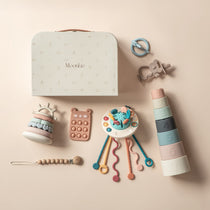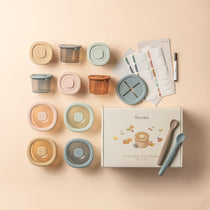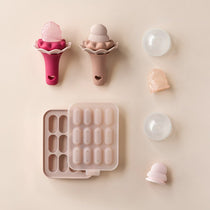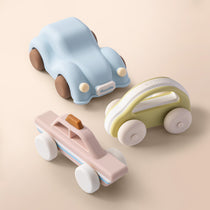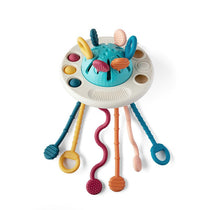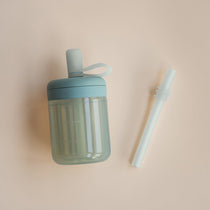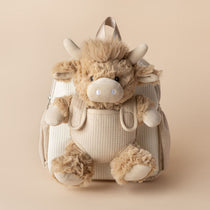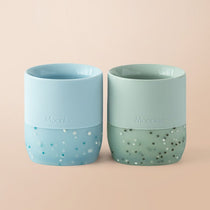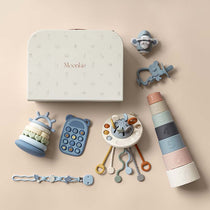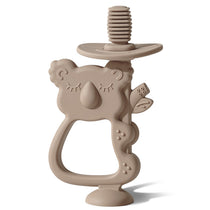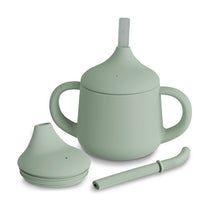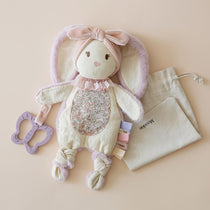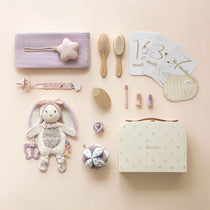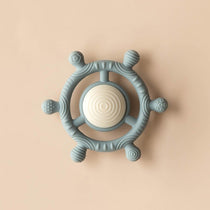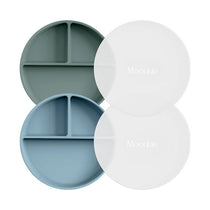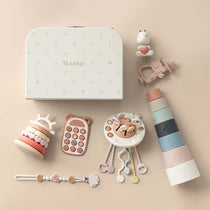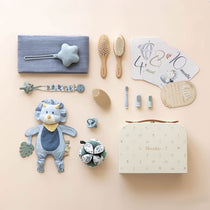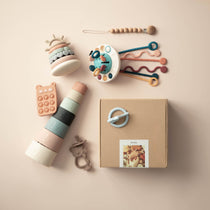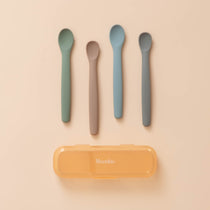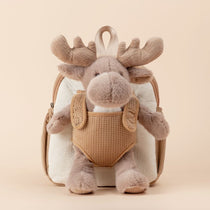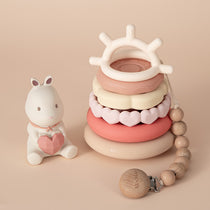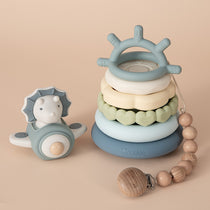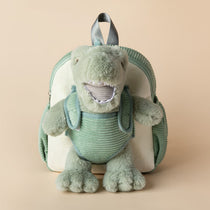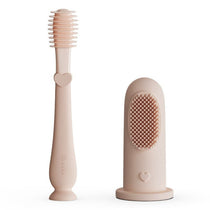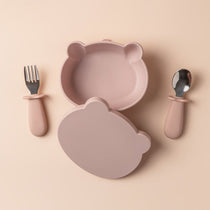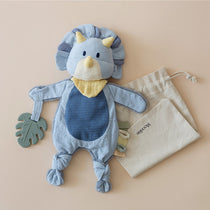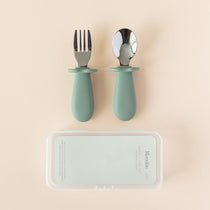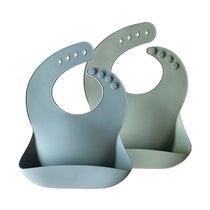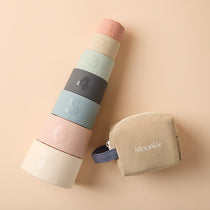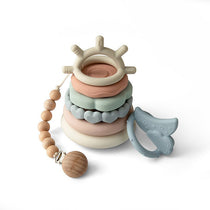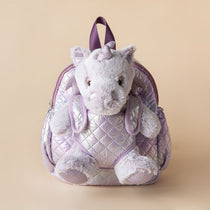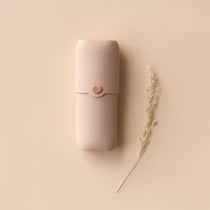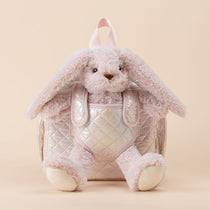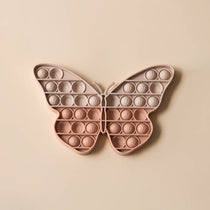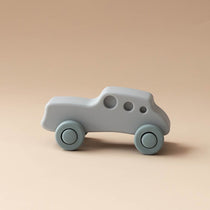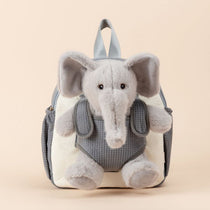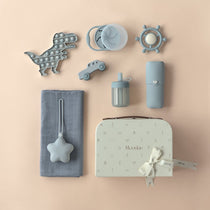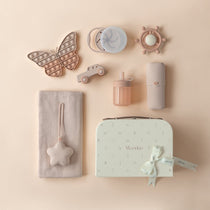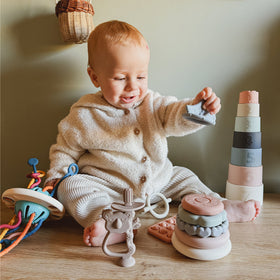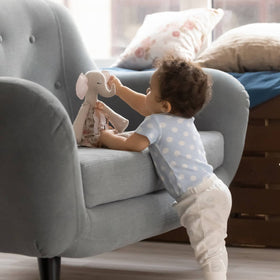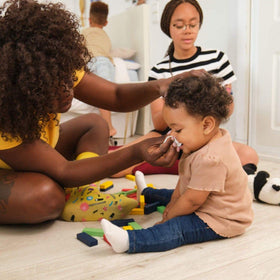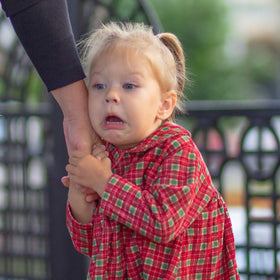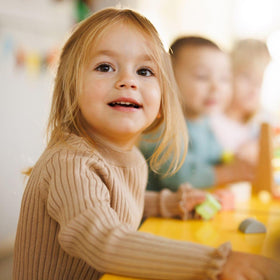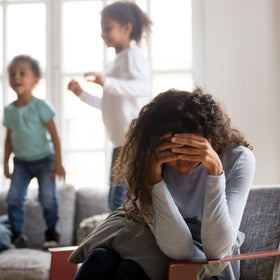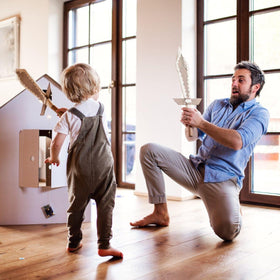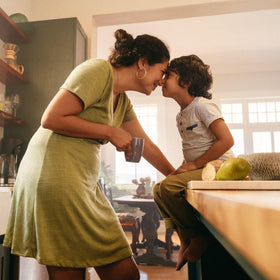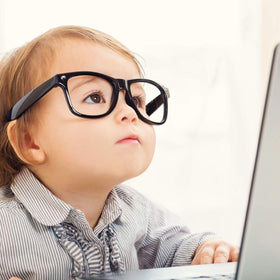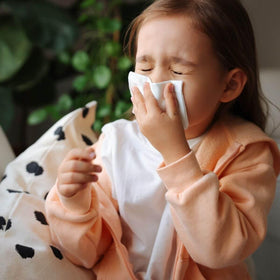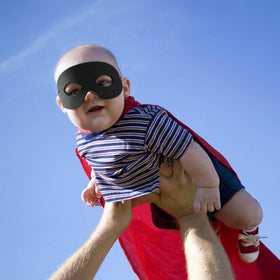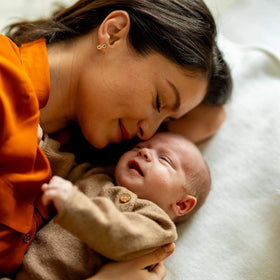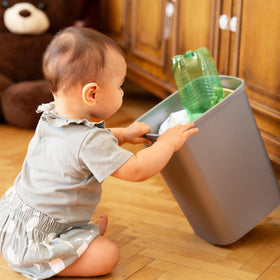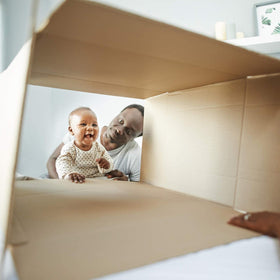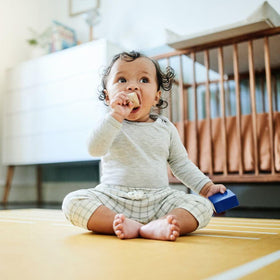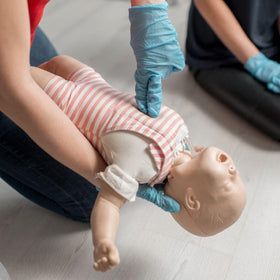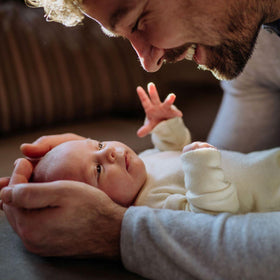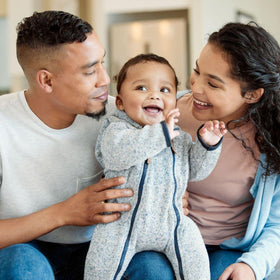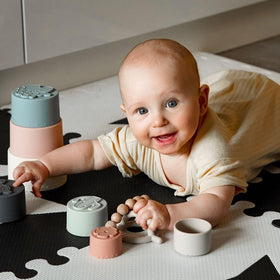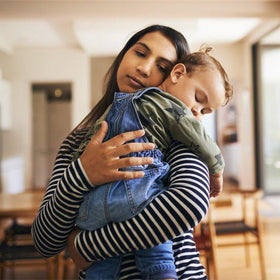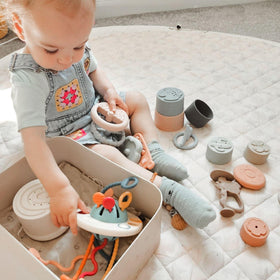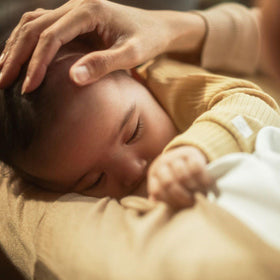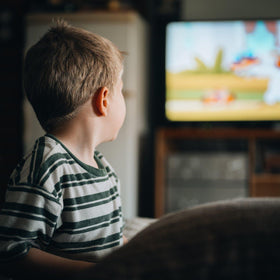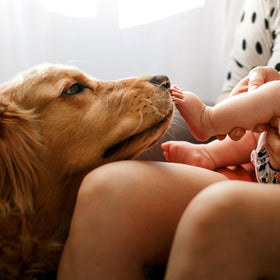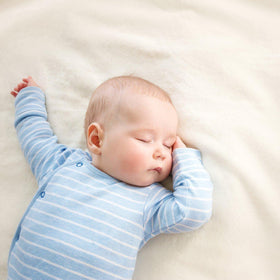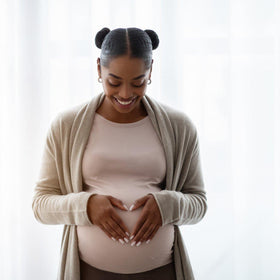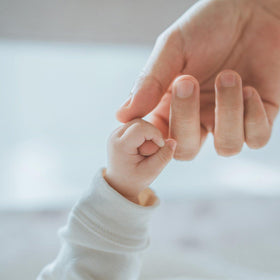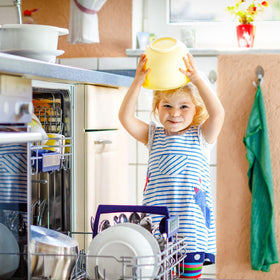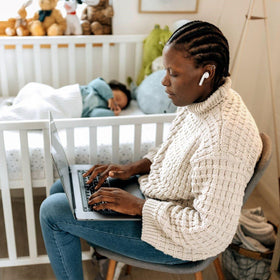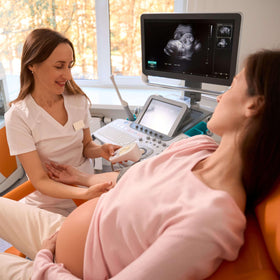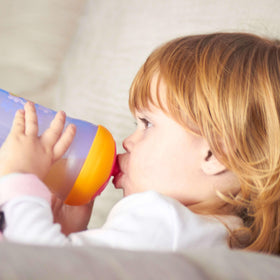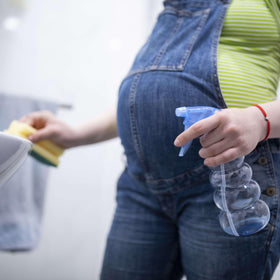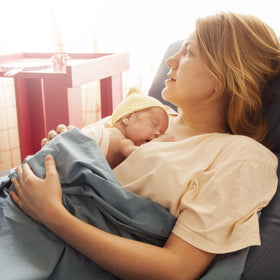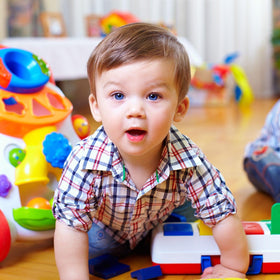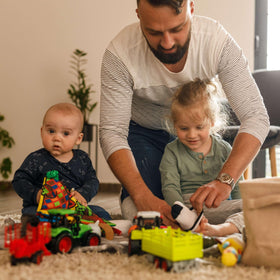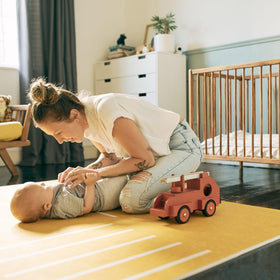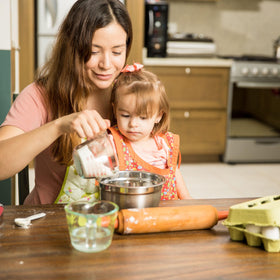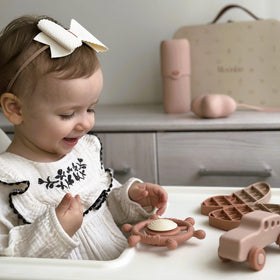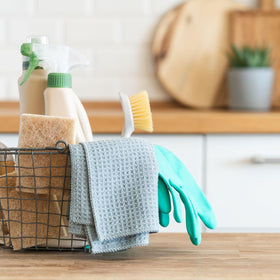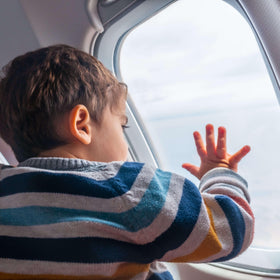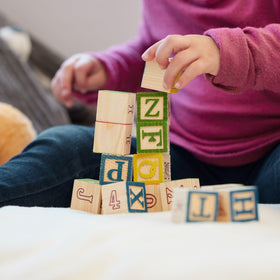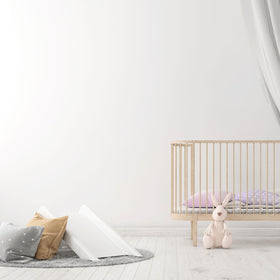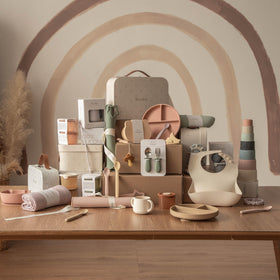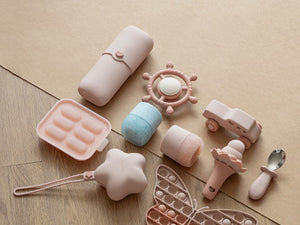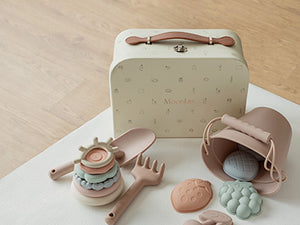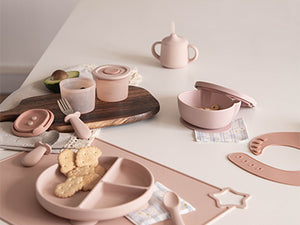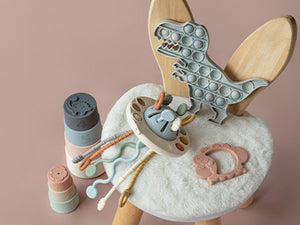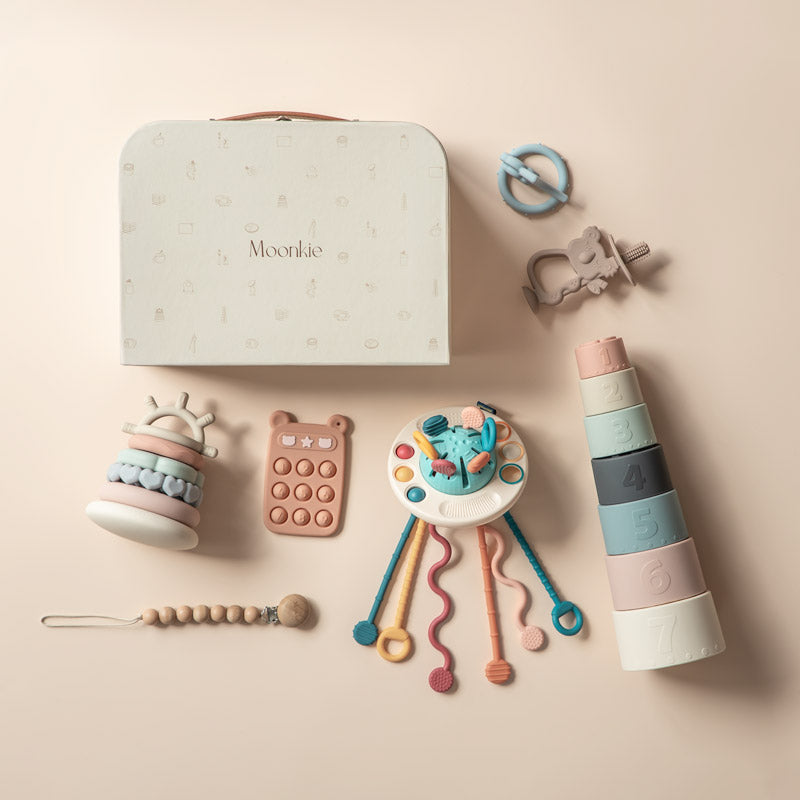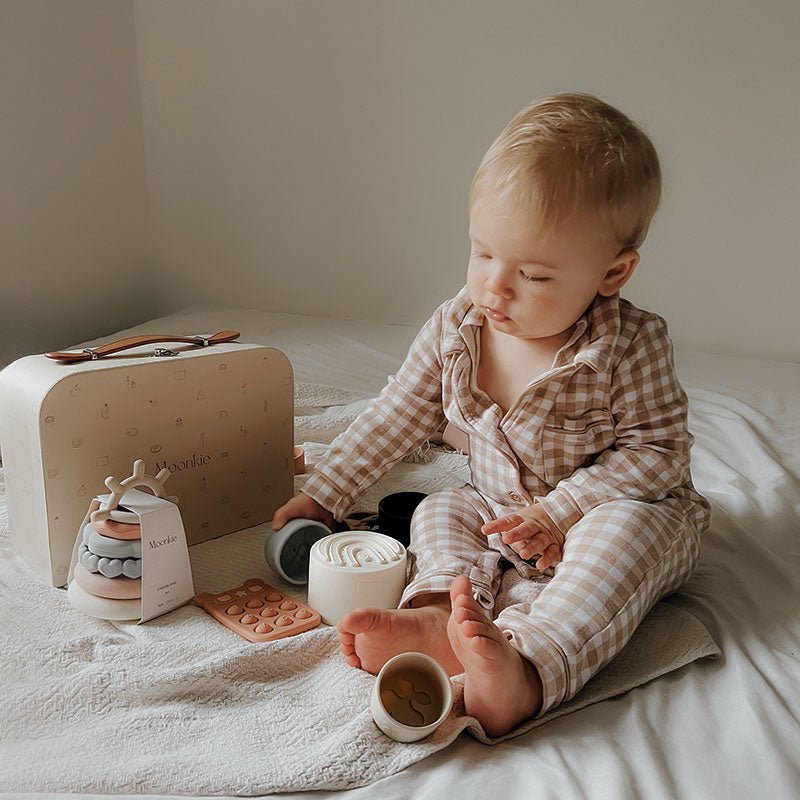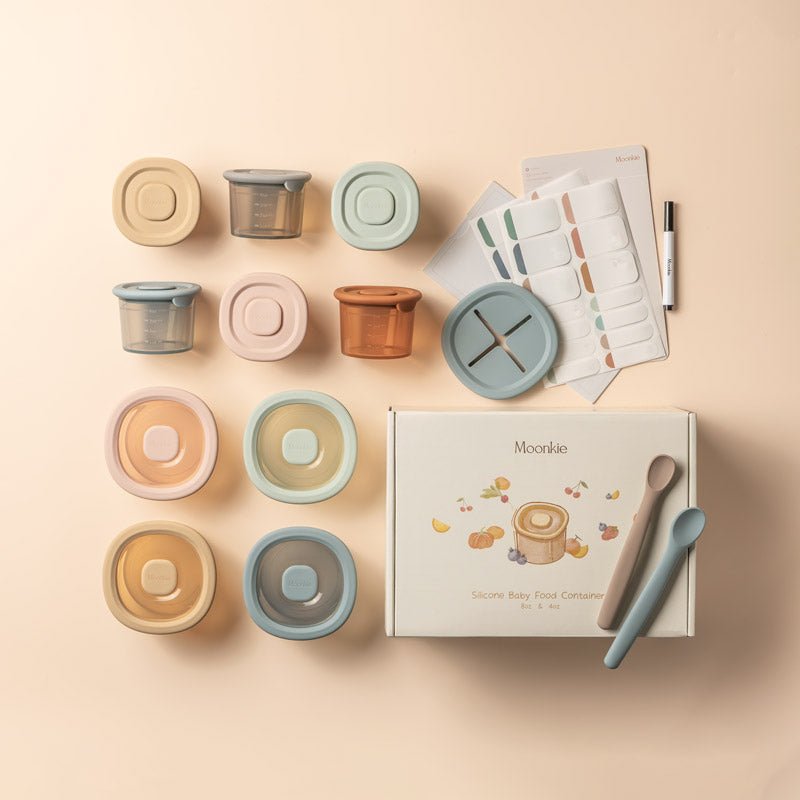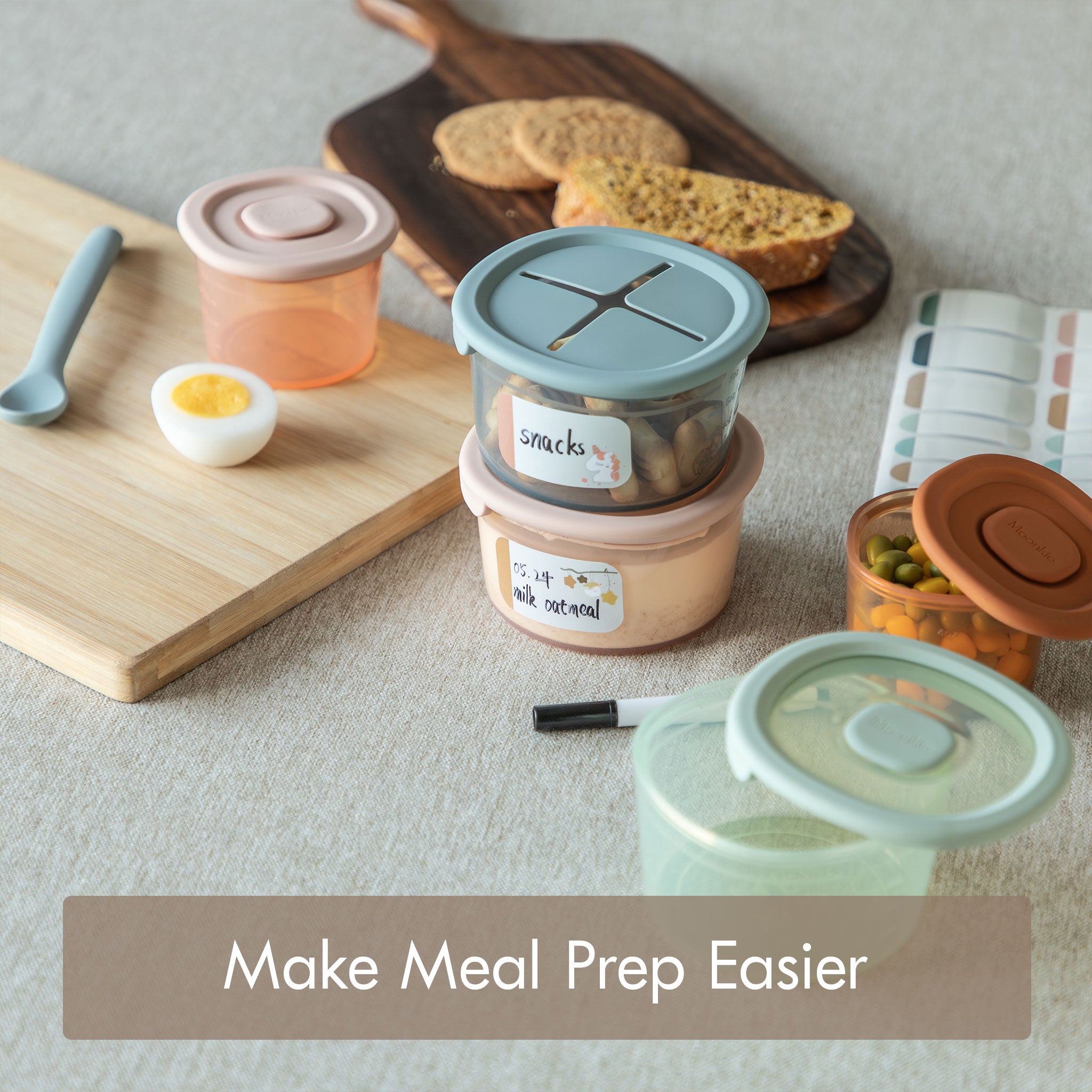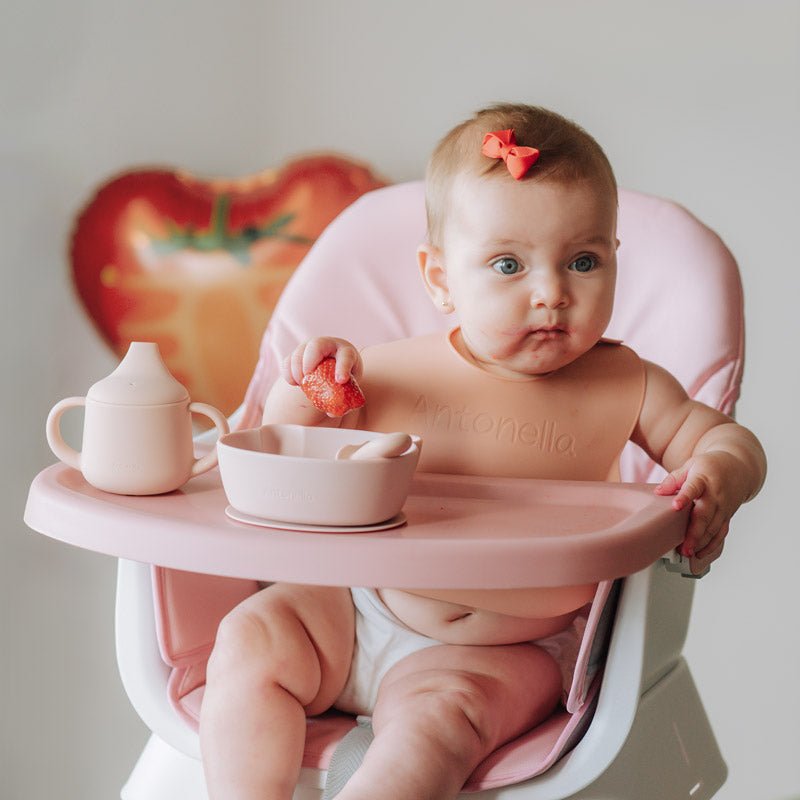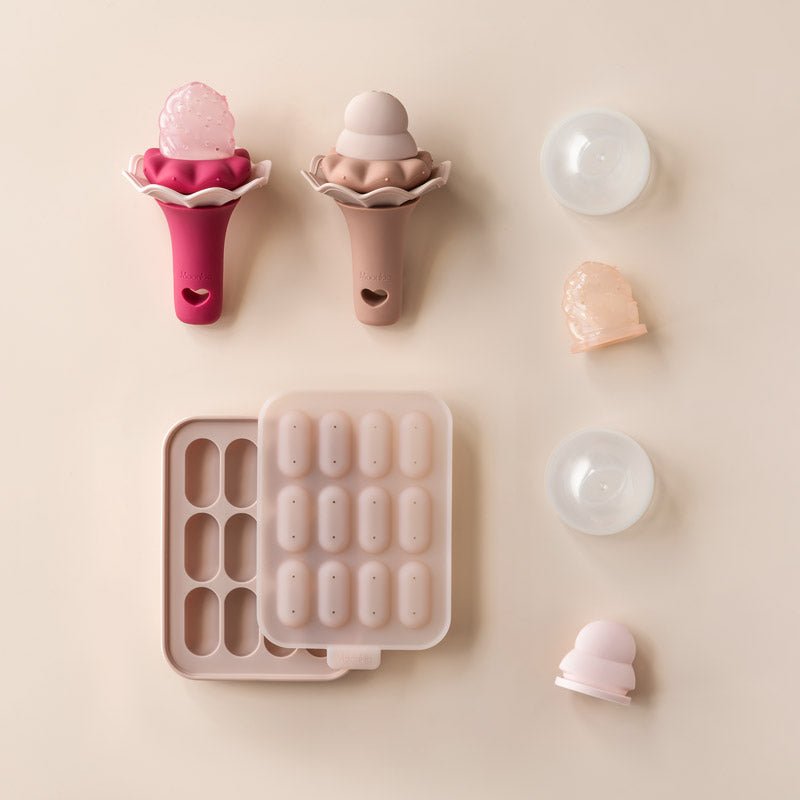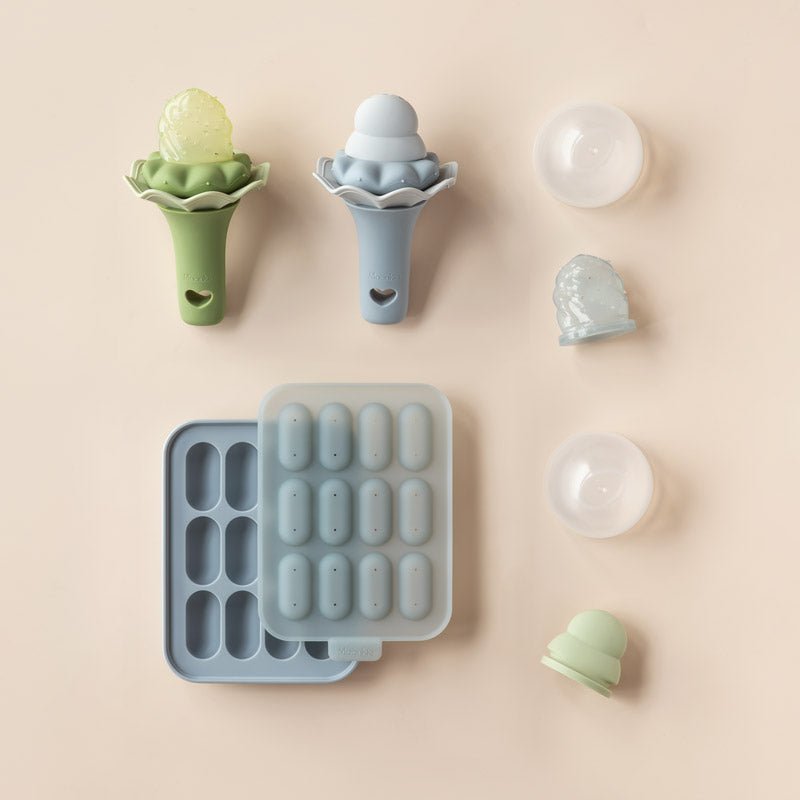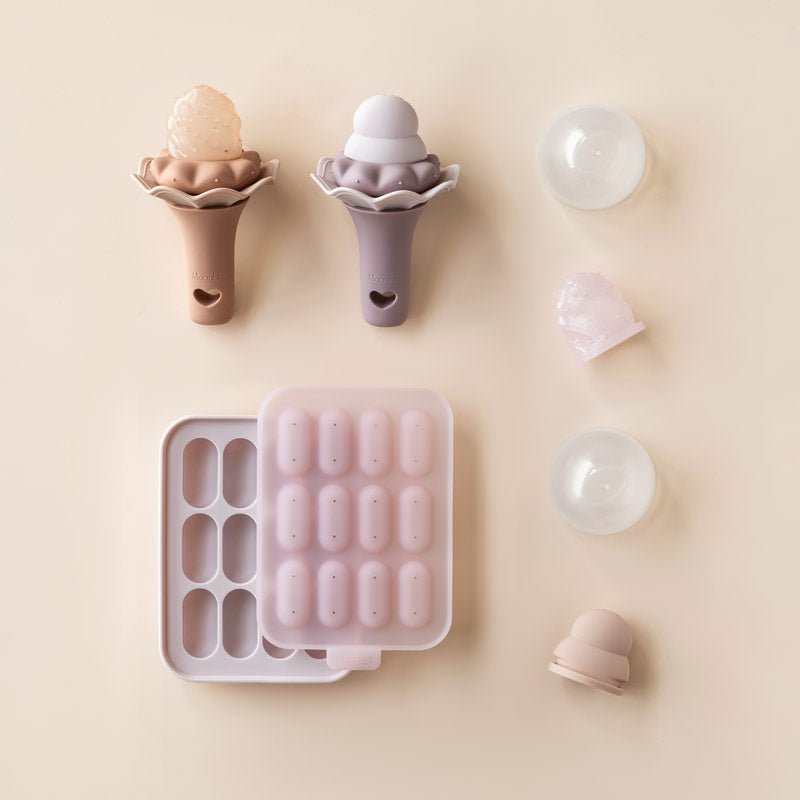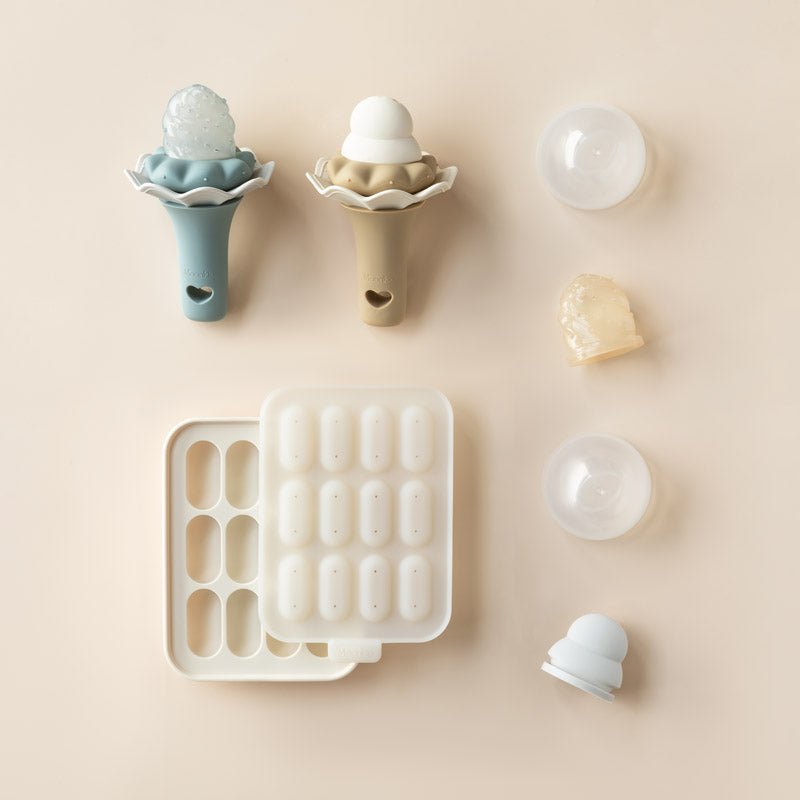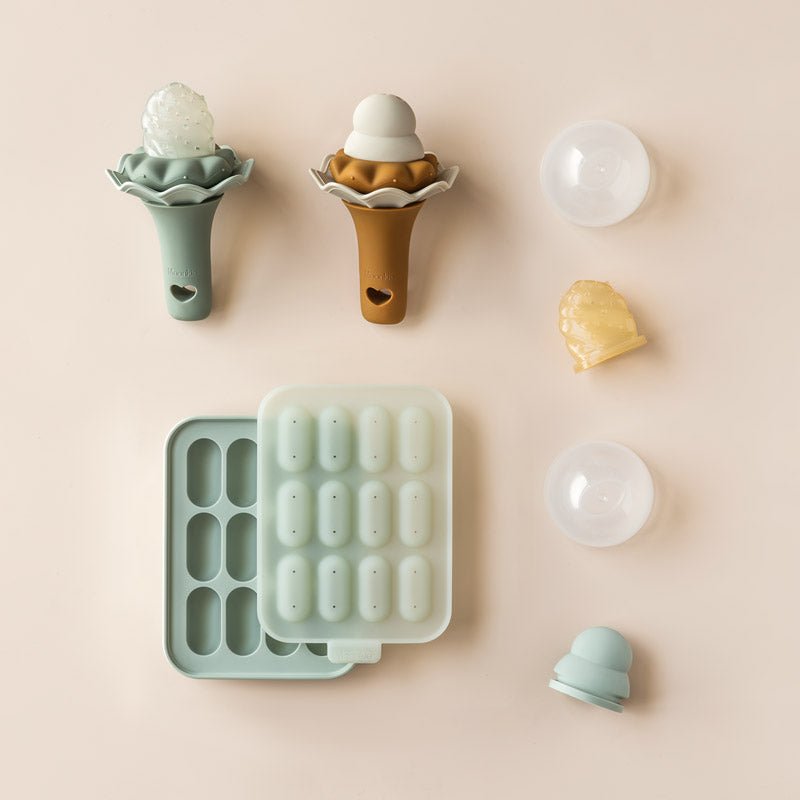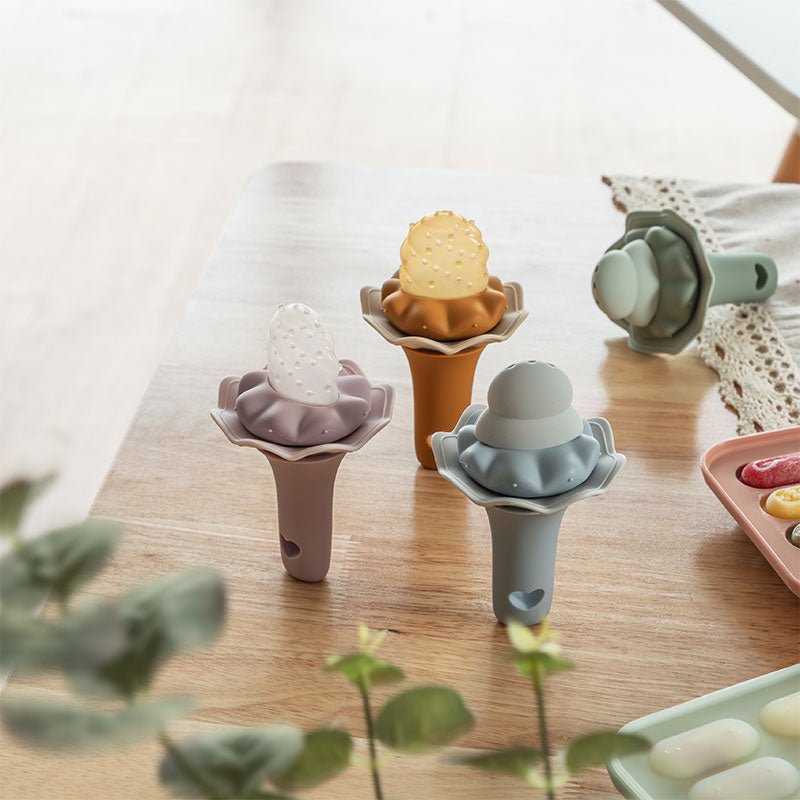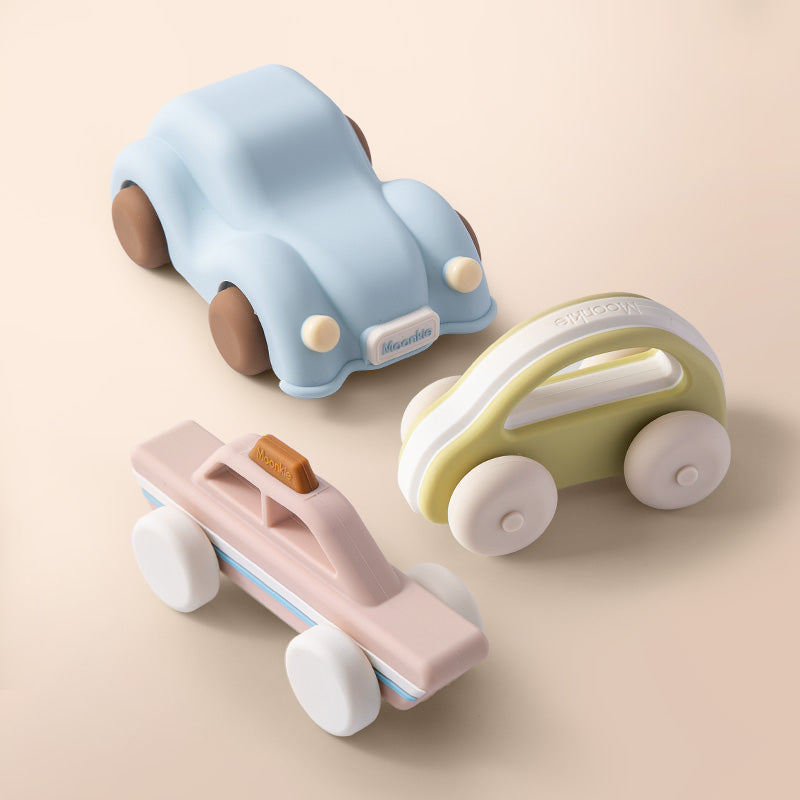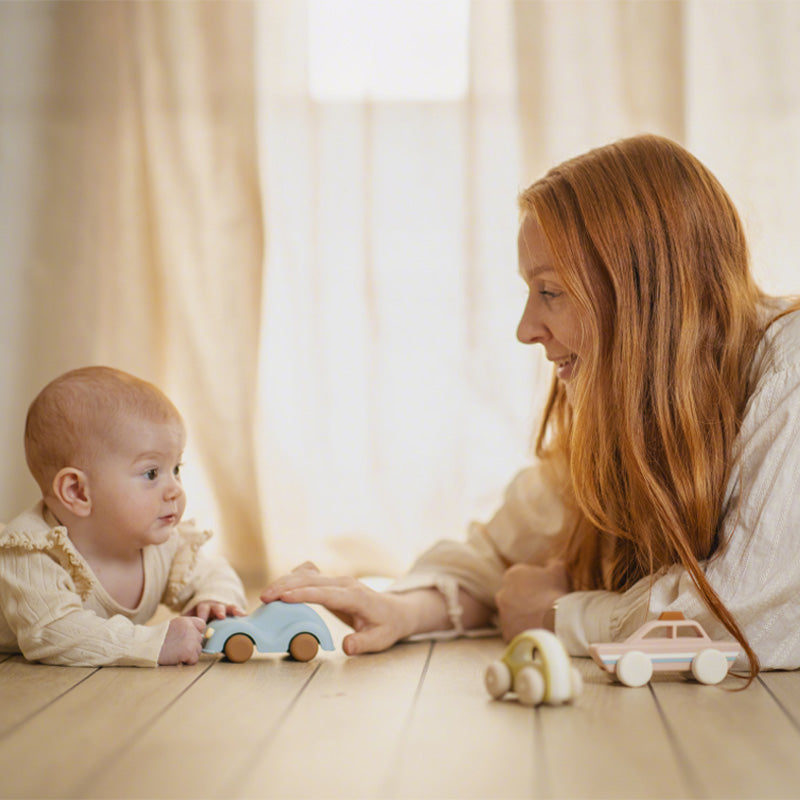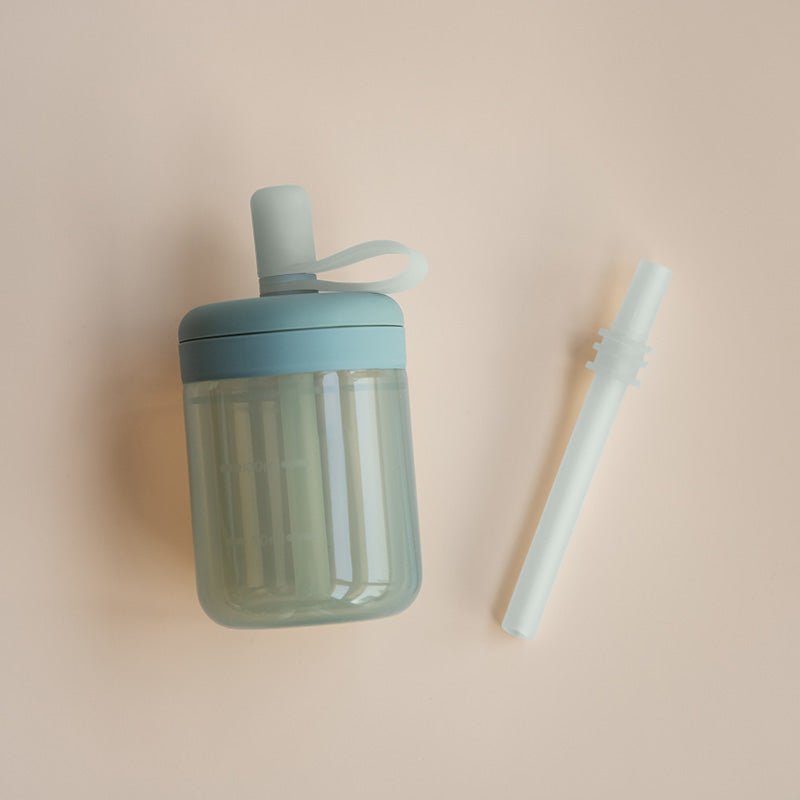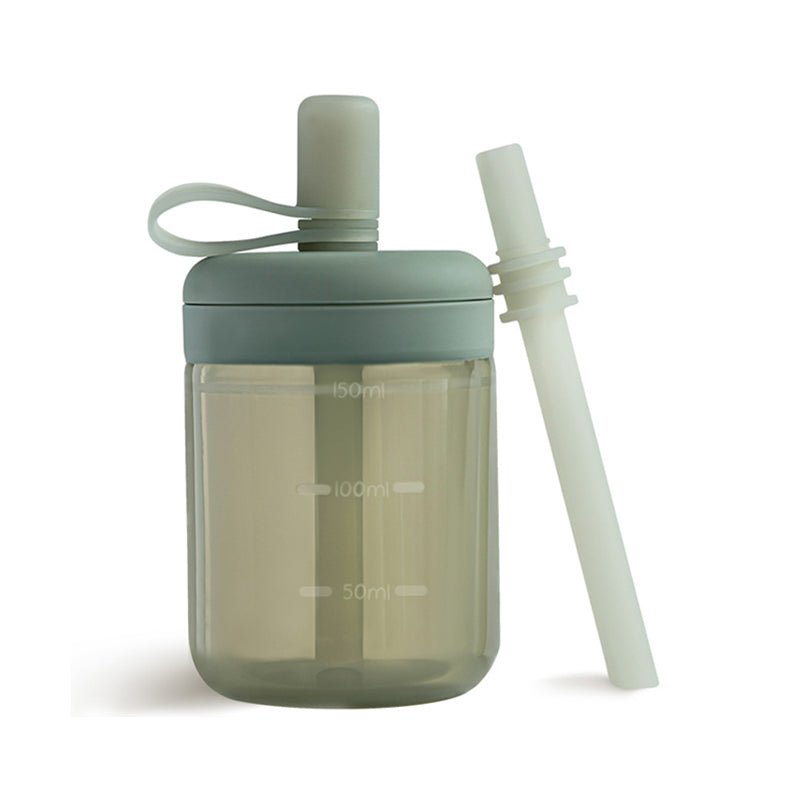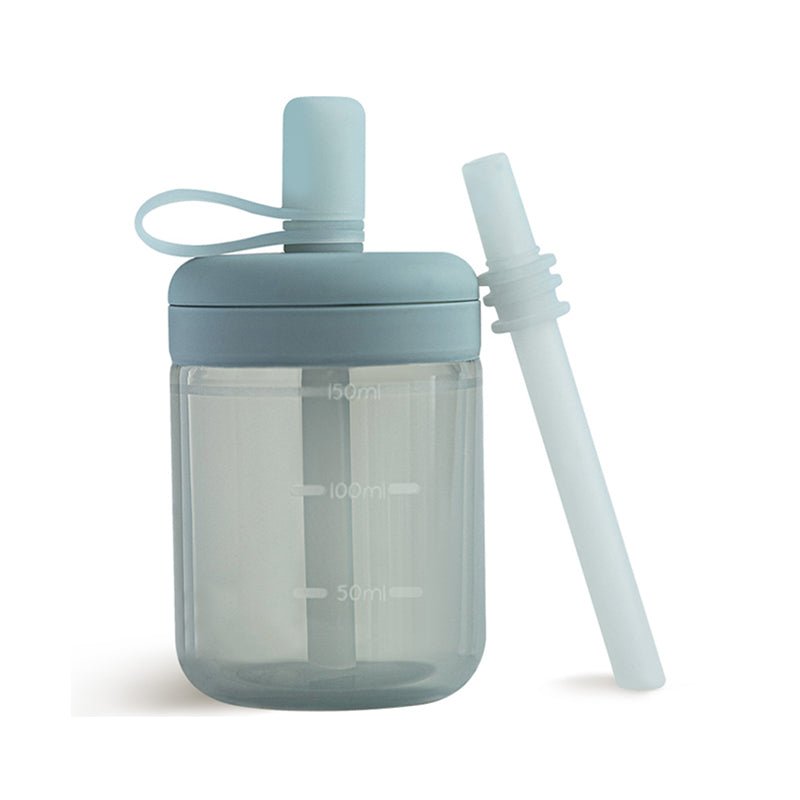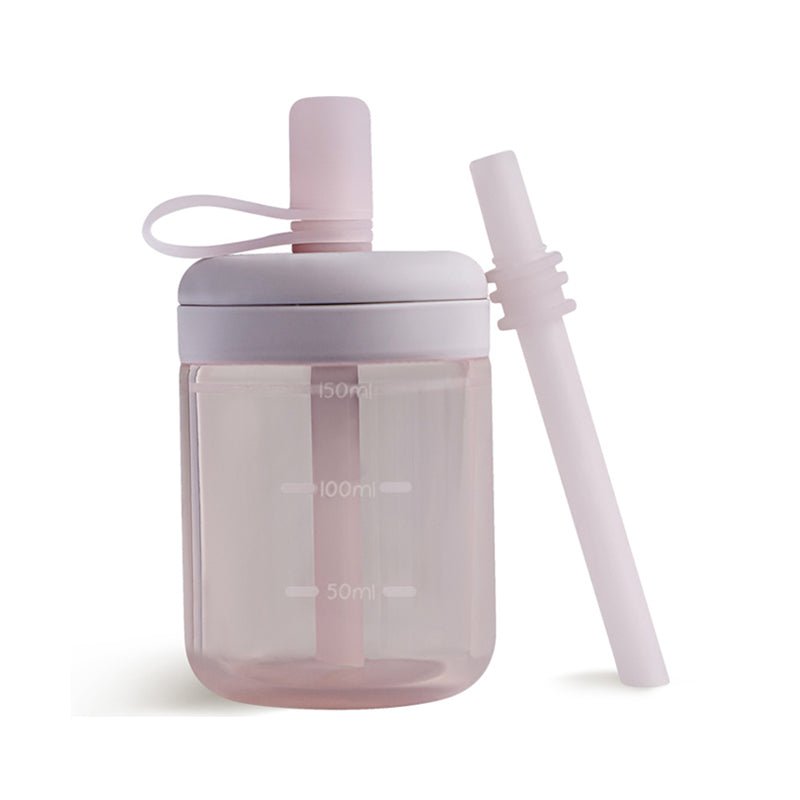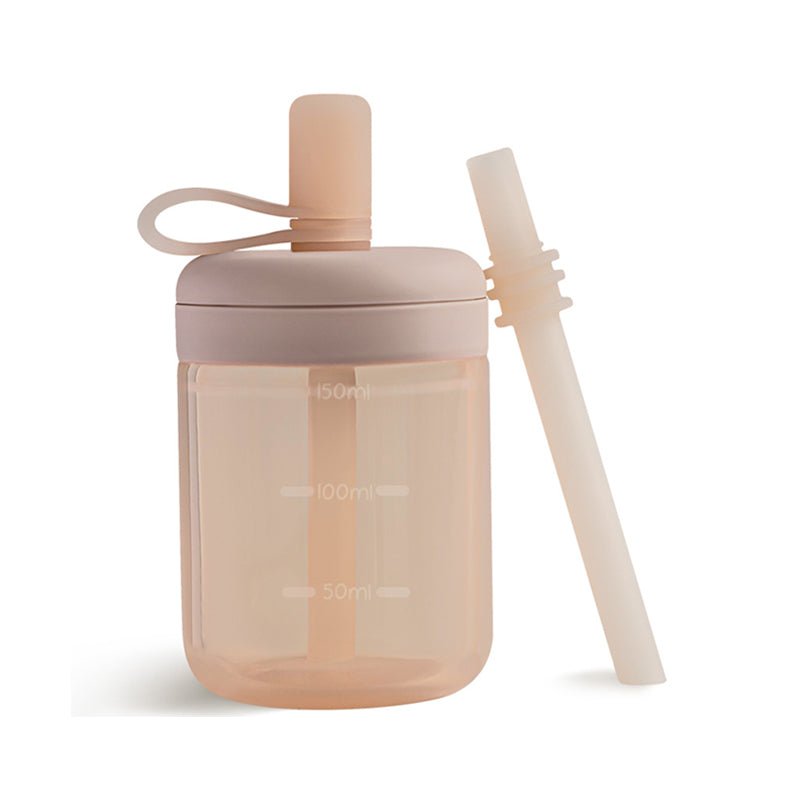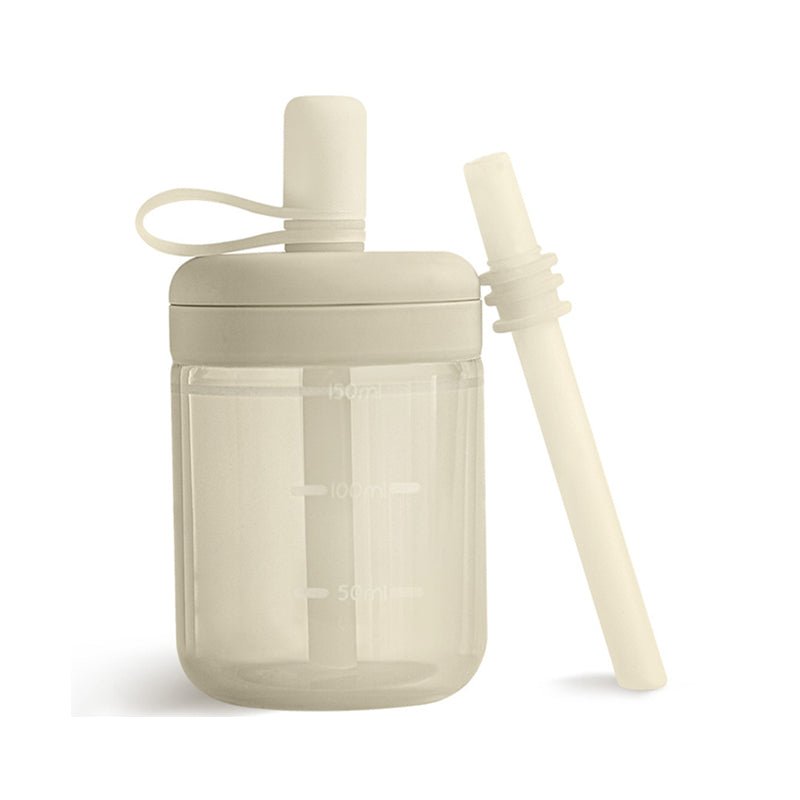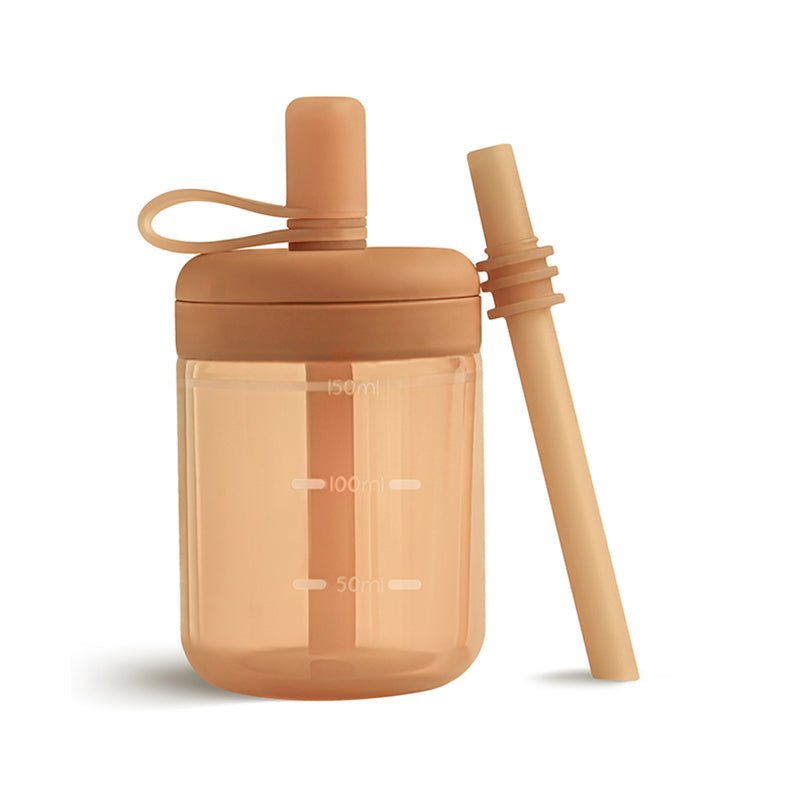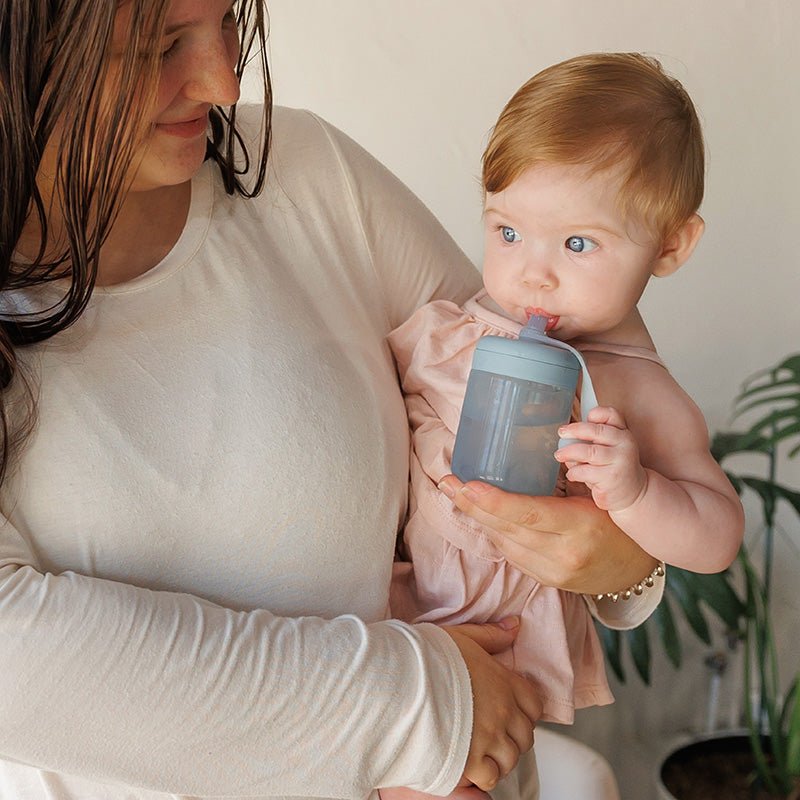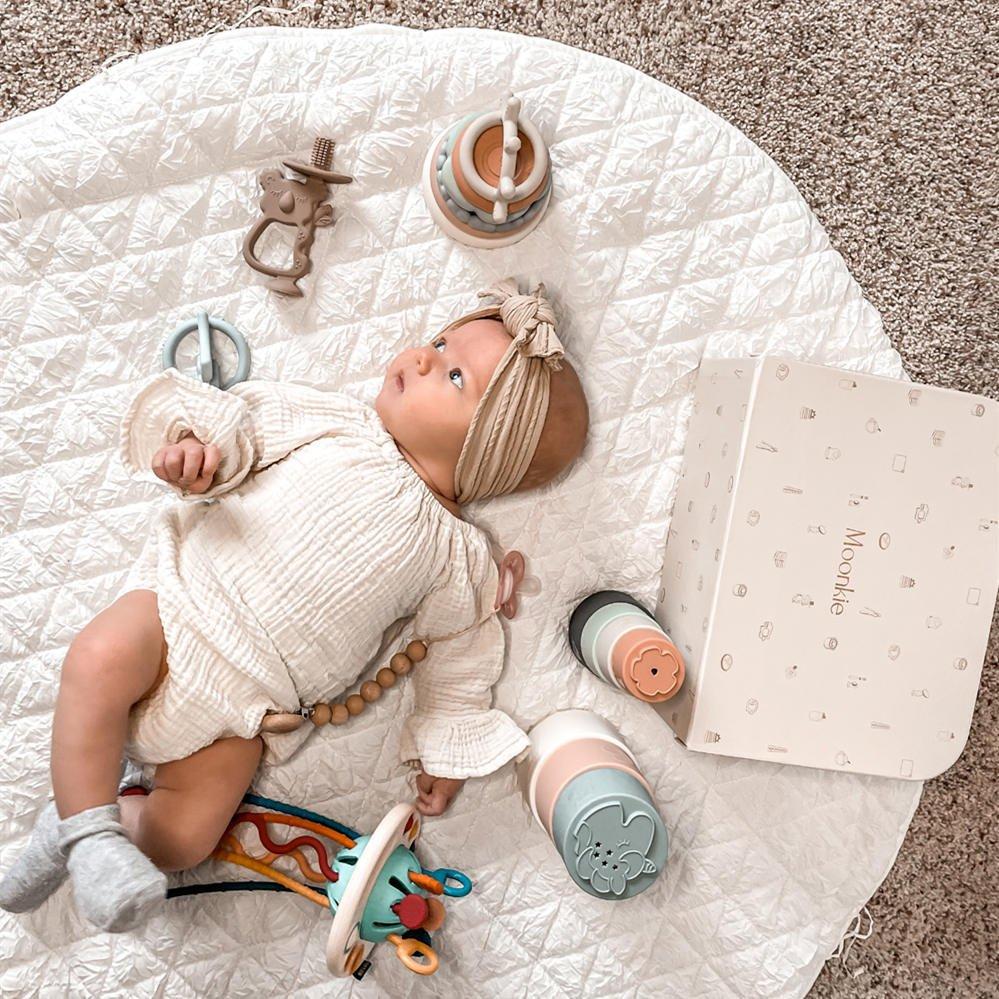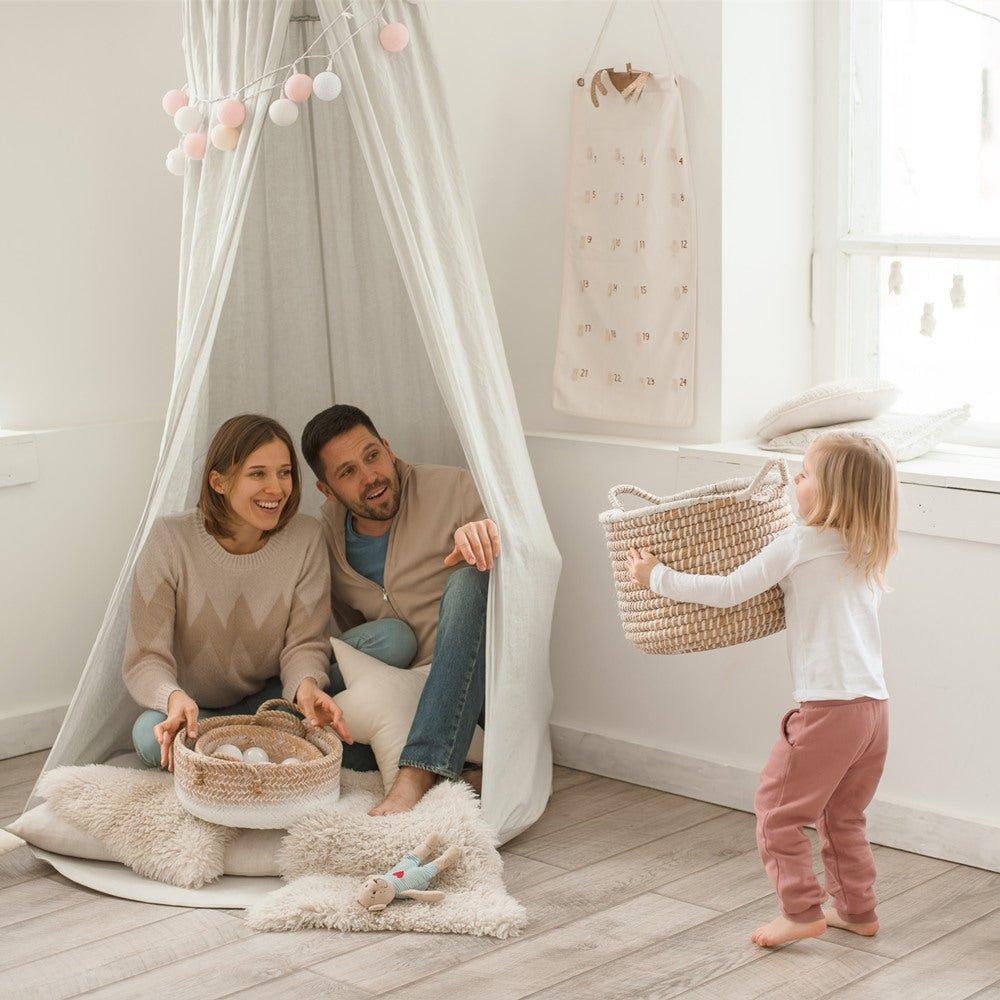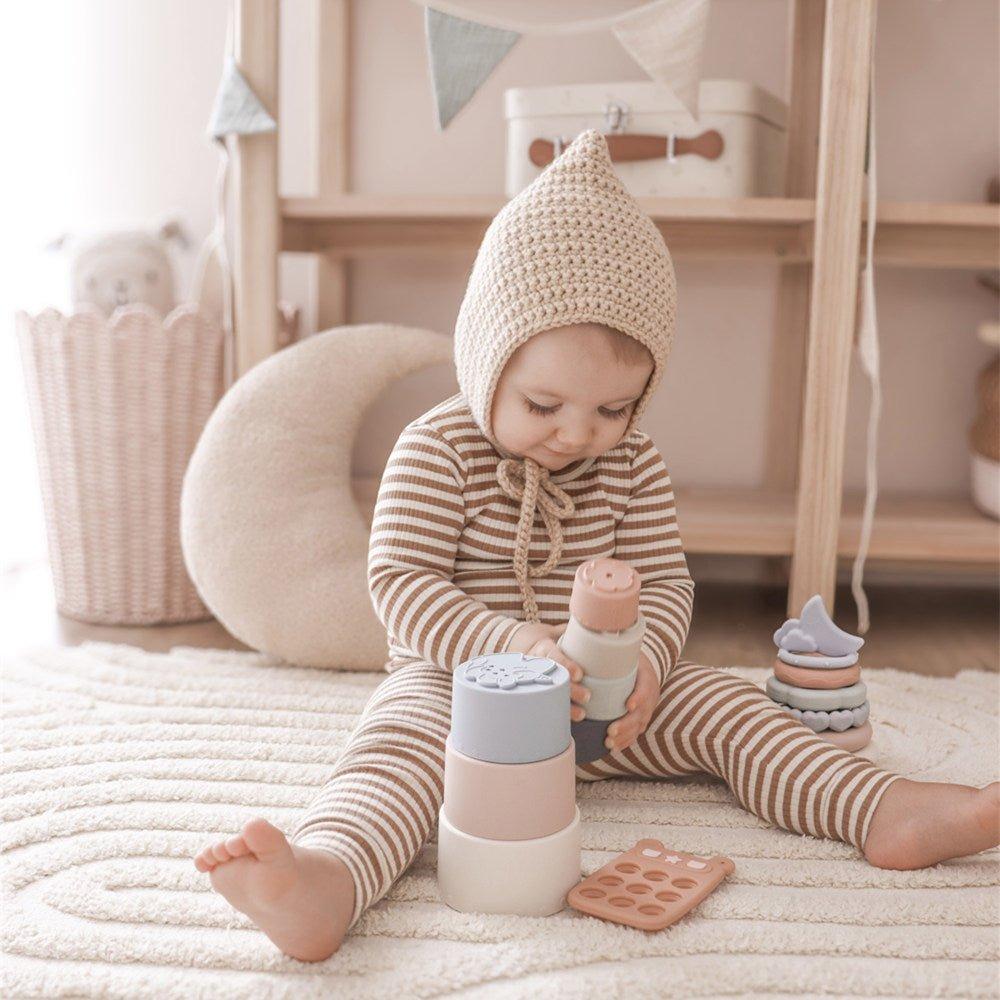
Trends are not the best way to parent, but one in particular has had a significant impact on the baby product industry: minimalism. Sure, those beautiful, clutter-free homes from other moms on Instagram and Pinterest look simplistically gorgeous and relaxing, but is minimalism good for babies and toddlers?
Minimalism is the art of living with less, and you can apply it to all aspects of life, including parenting. Practicing minimalism is excellent for young children because it helps them focus on one thing at a time rather than being overwhelmed by lots of stuff and to-dos. Even better, strategically having less can relieve parental stress.
As it turns out, babies and toddlers don't need everything marketing says parents need to raise happy, healthy children. Let's take a closer look at minimalism and how to implement aspects of it in your home.
What is Minimalism?
Before we dive into the specifics of minimalism for babies and toddlers, let's first define what minimalism is. At its core, minimalism is about simplifying your life and living with only the things you need or enjoy.
Minimalist principles include decluttering your home, simplifying your schedule, and focusing on experiences rather than material possessions. The hope is that you will feel free to breathe and live well by having less to worry about and manage.
The benefits of this are evident for adults living busy lives managing family, bills, and work, but one should ease into minimalism. It is not as simple as throwing everything out and starting over. One must work on allowing themselves to let go of stuff. Those with family heirlooms and a history of needing stuff should be especially cautious.
But what about the kids? Does minimalistic living take too much away from their childhood?
Benefits of Minimalism for Babies and Toddlers
Done in a healthy and mindful way, minimalism provides a wealth of opportunities for babies and toddlers to grow and develop at their own pace. And with parents living without the stress of clutter, little ones may feel more at ease in their environment than they would with parents constantly fussing about stuff.
 Note, however, that you can practice minimalism at varying degrees. Perhaps one is very minimalistic when it comes to furniture and decor but not minimalistic in kitchen tools and utensils.
Note, however, that you can practice minimalism at varying degrees. Perhaps one is very minimalistic when it comes to furniture and decor but not minimalistic in kitchen tools and utensils.
Or one is moderately minimalistic overall to pay off a mortgage or save up for travel, meaning they do have some extras but resist collecting and storing all the niceties, like trinkets, extra clothes, and holiday dinnerware.
Extreme minimalism (no furniture and everything-I-own-fits-in-a-backpack minimalism) is not what we refer to in this article. So, keeping that in mind, let's take a look at the benefits of minimalism for littles.
Less Overstimulation and Better Focus
While growing and developing so rapidly early on, babies and toddlers exploring with their senses can easily be overwhelmed by lots of stuff. Little ones learn by sensory stimulation, so the more they can concentrate on one thing, the better they can practice.
Dr. Maria Montessori, the creator of the Montessori Method, observed that children learn best when allowed to focus on something with primarily one sense (source). This observation led to the creation of simple "sensory toys and activities" that each catered to a particular sense.
Even today, Montessori-inspired sensory toys and activities aim to allow young children to explore by actively engaging with passive things at their own pace. Moreover, preparing the space before children enter the room is a notable principle of Montessori education.
Part of preparing the space is removing unnecessary clutter. With fewer toys and distractions, babies and toddlers are able to focus more on the toys and activities that they do have. Sure, he will bounce around a bit, but fewer distractions help improve his attention span nonetheless.
Considering the fact that Montessori Education has been well-respected and utilized for over 100 years, it is safe to say that we can learn a thing or two from it.
If you would like to learn more about the Montessori Method and how it helps prepare your little one for a successful life, read our article: Early Childhood Skills and Montessori Education: What You Should Know.
More Creativity
With fewer toys, children are more likely to be creative with what they've got. Imaginative play is crucial for developing problem-solving skills, encouraging independent play, and building communication skills.
More specifically, kids practice "navigating symbolic relationships," interpreting characters' mental states and behavior, and musing about what could have happened with counterfactual thinking (source). All of these are integral to living and functioning well in life!
Healthier Habits
Minimalism can also promote healthier habits for little ones. With a focus on experiences rather than material possessions, children are more likely to engage in physical activity, outdoor play, and other healthy behaviors.
Kids are sponges constantly soaking up everything their parents, home environment, community, and life has to offer them. If you model healthy habits of not holding things too tightly, regularly tidying up your home, and prioritizing connections with people and experiences, your kid will likely do the same later in life (source).
Drawbacks of Minimalism for Babies and Toddlers
Minimalism is not for everyone. Each family has its own unique culture, preferences, needs, and wants. Where one family will value tiny homes and simple living, others may cherish having the latest gadgets or owning a fully-stocked game room.
One fear many people have about minimalistic parenting is having too few toys and baby gear. By not having more than a couple bins of baby toys, would you rob your little one of choices and opportunities for exploration?
This drawback actually has a simple fix: get only what your little one needs for her stage in development and pass them on to someone else once your family no longer needs them. Another option is to divide the baby toys into two or three groups and rotate them out every few days or weeks.
You can also "listen" to your wee one by observing her independent play. Is she tiring of toys quickly? If so, try changing a couple out, hand her a safe kitchen utensil, or set up a sensory activity. Read Baby Sensory Activities: A Guide to Promote Healthy Development for some ideas.
Another drawback is the social pressure many parents face to provide their little one with the latest and greatest toys and gadgets. Embracing a minimalist lifestyle may go against the norm, and you may have to defend your choices to others, especially around Christmas and birthdays.
Finally, parents may struggle to balance their child's needs and wants. While a minimalist lifestyle can help you prioritize your needs over wants, it is an entirely different thing to say no to your little one's desires, particularly when they are old enough to strongly desire something but too young to understand why you make the choices you do.
7 Minimalist Baby Product Strategies for Clutter-free Living
Parenthood can be a wonderful and fulfilling experience, but being responsible for little people can also be overwhelming, especially with baby products. From cribs and strollers to toys and clothes, navigating the vast sea of baby products on the market can be challenging.
However, with a minimalist approach, it's possible to cut through the clutter and focus on what's truly essential for your baby's needs while keeping your home clutter-free. Here are a few tips to get you started.
Focus on the Essentials
With baby products, it's easy to get caught up in the latest trends. However, a minimalist approach means focusing only on the essentials, prioritizing products that will genuinely benefit your baby's health and well-being.
For example, essential items include:
- a safe and comfortable sleeping space
- a car seat
- a diaper bag
- a few sensory toys
- clothing essentials like onesies and sleepers
Focus on what will be used most frequently to get the most value.
There are also things that some parents deem essential that may not be essential for you. Take baby swings, for instance. Some parents feel they need a baby swing to keep their baby in one place while they get something done. But others find swings too tempting for buying time or bulky for a small living space and opt to wear their baby instead.
Invest in High-quality Products
For minimalists, it's vital to focus on quality over quantity. Investing in high-quality products means you'll get more use out of them and won't need to replace them as frequently.
For example, investing in a high-quality stroller or baby carrier can last you through several children and save you money in the long run. Resist the temptation to buy cheaper products that may not last as long and could end up costing you more in replacements.
For baby toys and dishes, start with high-quality, long-lasting materials like food-grade silicone and wood. Though these are more expensive upfront, you will find that the cost per use is much better over time.
Opt for Multi-functional Products
Another way to minimize baby products is to opt for multi-functional items. Instead of buying separate items for different purposes, look for products that serve multiple functions.
For example, you can invest in a convertible car seat that can be niftily adjusted from infancy to toddlerhood, eliminating the need for separate infant and toddler car seats. These silicone teether rings are also part of a stacking toy set for later fine motor skill development stages.
Borrow or Buy Secondhand
Another way to minimize clutter and save money is to borrow or buy secondhand baby products. Many friends or family members may be happy to lend or give away baby items they no longer need. You may also find a consignment event like Rhea Lana's nearby.
Additionally, purchasing secondhand items can save you money while still providing great quality products for your baby. As a precaution, inspect any secondhand items carefully for safety and cleanliness before using them.
Avoid Overbuying Clothes
One of the largest sources of baby clutter is clothing. Babies grow quickly, and buying an abundance of cute outfits for your little one can be tempting. Or perhaps family members can't help themselves when they see adorable clothes.
However, you will thank yourself later if you stick to being super intentional about what you buy. Instead of overbuying, focus on essentials like onesies, sleepers, and a few outfits for special occasions. Does your little one really need 40 outfits and 12 sleepers? With how often you've got to do laundry to keep the smell down, probably not.
Embrace Simple Toys
Toys are another huge source of clutter in many households. However, babies don't need a lot of toys to be happy and entertained. And you will likely be surprised at how little toddlers require for contented playing and learning as well.
Embrace simple toys, like wooden blocks, balls, stacking toys, shape sorters, and pull-along toys that encourage creativity and imagination. Toys like these are fun for several early development stages, so they grow with your child.
Shielding your little one from the majority of toy marketing will also help them. With statistics saying American children view 40,000 ads per year on average through content consumed online, TV, child-oriented apps, and other media sources, you can see why some kids quickly become discontent with the mountain of toys they already have (source).
You can get around the sheer number of ads by simply taking a minimalistic approach to screen time and avoiding walking through the toy section in stores. Doing so will help your little one discover what she enjoys by herself in her own time rather than being told what she wants by marketing.
Embrace Experiences
Instead of spending money on material possessions you may end up kicking around, prioritize experiences with your child. These don't have to be crazy big or far; you can take trips to the park, have a family board game night, play a sport together, go hiking, cook together, and anything else that prioritizes time together.
Yes, playing board games with a baby is not easy, but letting her sit in your lap and fiddle with some game pieces will mean more to her than you can imagine. Even traveling before your little one will really remember it can build a confidence and competence in exploration that makes the toddler travel well worth all its ridiculousness.
In a Nutshell
Adopting a minimalist approach to baby products can help you simplify your life and create a clutter-free living space. Moreover, minimalism may free you from the stress of constantly moving, managing, and cleaning stuff, especially baby toys, clothes, and products.
By focusing on absolute essentials, investing in high-quality products, opting for multi-functional items, borrowing or buying secondhand, avoiding overbuying clothes, and embracing simple toys, you can create a functional and free space for you and your little one.

